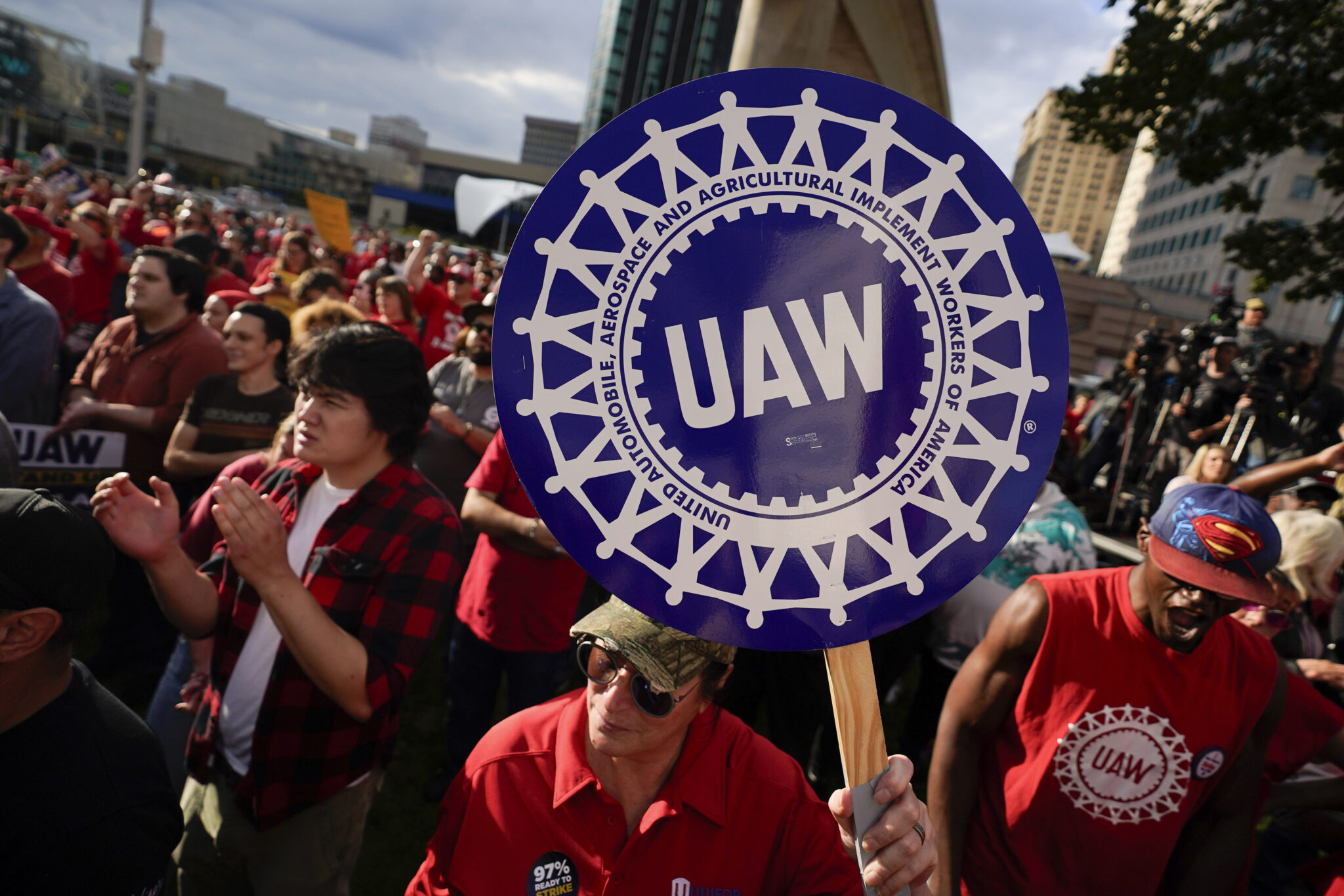
Ajayan Williamson is a student at Harvard Law School.
In today’s news and commentary, a new report alleges retaliation by the UAW President; Senators question Trump’s pick to lead the EEOC; and California considers a bill to expand protections for workers without timely NLRB remedies.
On Tuesday, a court-appointed monitor released a new report on allegations of misconduct in the United Auto Workers (UAW). The monitor was appointed in 2021 pursuant to a consent decree after the Department of Justice filed an anti-corruption lawsuit against the union. The latest report finds that UAW President Shawn Fain took “premeditated” and “retaliatory” action against Margaret Mock, the UAW’s secretary-treasurer, after she refused to approve inappropriate spending. Mock is a Black woman, and the report also finds that Fain attempted to conceal his role in the retaliatory scheme to avoid allegations of racism against her. The report calls for the UAW to reverse the actions taken against Mock, but it defers recommending any charges while the investigation continues.
Meanwhile, Trump’s nominee for EEOC Chair fielded questions from Senators at her confirmation hearing yesterday. Trump appointed Andrea Lucas to the EEOC during his first term, elevated her to acting Chair when he took office in January, and re-nominated her for another five-year term in March. At her confirmation hearing, Senate Democrats pressed Lucas on her decisions to drop the agency’s lawsuits on behalf of transgender workers and questioned whether the agency remained independent from President Trump under her leadership. In response, Lucas reaffirmed her “commit[ment] to dismantling the identity politics that have plagued our civil rights laws,” and expressed her view that “the EEOC is not an independent agency.”
Lastly, the California Senate held its first hearing yesterday on AB 288, a bill that union leaders say would ensure “a real right to unionize” in the state. AB 288 would expand the jurisdiction of California’s Public Employment Relations Board (PERB) in two ways: first, allowing PERB to automatically cover workers who are stripped of NLRA protection in the future, and second, allowing workers to petition PERB for recognition, a bargaining order, or protection from unfair labor practices if the NLRB fails to meet certain deadlines for relief. At the hearing, the Chamber of Commerce argued that the bill is Garmon preempted — but the NLRB’s present incapacitation might make state-level relief both necessary and legally permissible.






Daily News & Commentary
Start your day with our roundup of the latest labor developments. See all
January 22
Hyundai’s labor union warns against the introduction of humanoid robots; Oregon and California trades unions take different paths to advocate for union jobs.
January 20
In today’s news and commentary, SEIU advocates for a wealth tax, the DOL gets a budget increase, and the NLRB struggles with its workforce. The SEIU United Healthcare Workers West is advancing a California ballot initiative to impose a one-time 5% tax on personal wealth above $1 billion, aiming to raise funds for the state’s […]
January 19
Department of Education pauses wage garnishment; Valero Energy announces layoffs; Labor Department wins back wages for healthcare workers.
January 18
Met Museum workers unionize; a new report reveals a $0.76 average tip for gig workers in NYC; and U.S. workers receive the smallest share of capital since 1947.
January 16
The NLRB publishes its first decision since regaining a quorum; Minneapolis labor unions call for a general strike in response to the ICE killing of Renee Good; federal workers rally in DC to show support for the Protecting America’s Workforce Act.
January 15
New investigation into the Secretary of Labor; New Jersey bill to protect child content creators; NIOSH reinstates hundreds of employees.